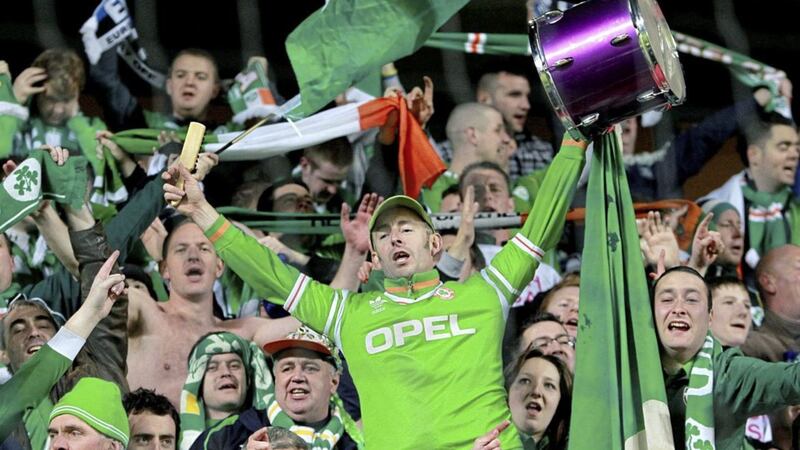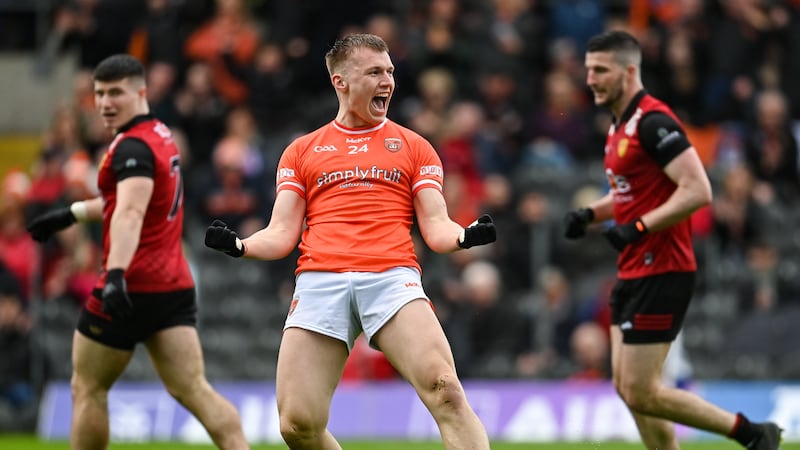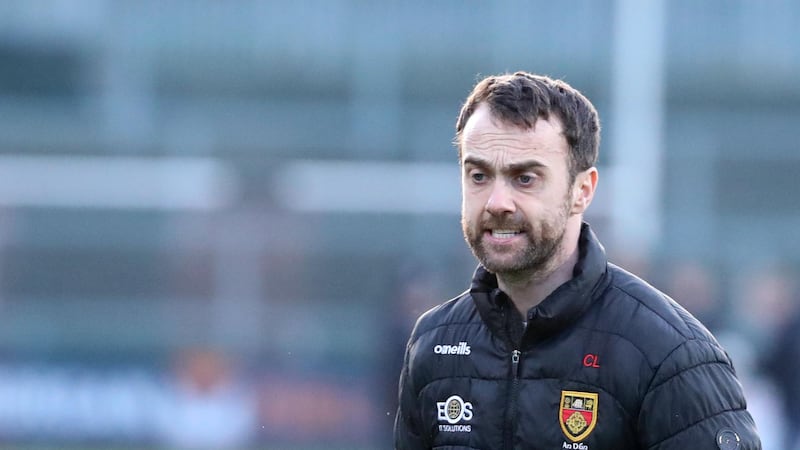THE emotions you have experienced as an Irish sporting fan over the last three days will depend on which side of 45 you are.
Being born in early-70s Ireland wouldn’t have been regarded as a stroke of luck at the time.
A country ravaged by unemployment, boredom, violence, alcoholism, Catholicism, self-loathing and a lack of opportunity, it was no land of hope and glory.
And then Jack Charlton happened.
Those that hit their adult years in the late 80s and lived their best young, free and single lives through the hazy summer parties of ’88, ’90 and ’94 will have been transported back since the news of his passing broke on Saturday morning.
For those of us too young to remember how it was then, the imagery of the last few days evokes jealousy.
I was two days old, just after leaving Altnagelvin Hospital in the summer sun, when Ray Houghton whiplashed the ball over Peter Shilton in Stuttgart.
I’d have loved to have been old enough to have felt that staggered heartbeat while waiting to see what kind of history David O’Leary would write for himself, and all of us.
For our generation, Robbie Keane’s penalty against Spain felt briefly like that moment, but it didn’t even last an hour until a divot on the six-yard line sent Gaizka Mendieta’s spot-kick hopping over Shay Given’s leg.
The trembling fear of what Spain might do, a feeling that multiplied with Fernando Morientes’ early header, had quickly disappeared.
Little Ireland, with its second-rate domestic league and a waning influence across the water, had battered the Germans, and now they were battering the Spanish.
Subsequent tournaments have turned up moments like Robbie Brady’s header, but it will never qualify to be mentioned in the same breath as Houghton’s lob against a full-strength Italy.
And yet that hints at how we’ve become a spoiled people.
How dare we turn our noses up at any shape of a win over Italy in a major tournament?
When does belief and aspiration become a lack of humility?
The more we have, the more we want.
In the late ‘80s, very few people had more than last week’s wages behind them, so materialism didn’t exist.
Our parents, and their parents before them, had nothing.
Perhaps that’s why they embraced Jack’s team.
Not just the fact that they represented the best of us, but that he did too. A man who said the words that needed to be said and little else, from a working-class family, who experienced the Northumberland coalpits himself before making his way in football.
It’s hard to imagine Ireland would ever have taken a southern Englishman to heart in the same way.
The people adored his effect as they danced through the streets, their faces painted green, white and orange, not a replica jersey in sight, hats, scarves, songs.
A world that had for 30 years viewed Ireland as almost this war-torn place where two sides couldn’t agree on the colour of the sky, suddenly came to see it as synonymous with these happy, well-mannered, good-natured football supporters.
This was what the people always had the capacity to be, if someone just shone a little light into their lives.
Whatever Roy Keane might think of it, the Irish reputation of being at major tournaments to sing a few songs, enjoy a party and stay for as long as it lasts is not a bad name to have.
Here we are on the edge of diving back into a deep recession now, having spent the last decade fighting our way out of one. But there still always seemed to be money and work in the country these years. There’s something behind us now as a country.
While the 1970s generation had to worry about having enough money to live, the majority of Irish people worry about having enough money to live the lifestyle we desire.
The nice car, the four-bedroom house, the latest phone, the nights out. Anything less can seem like destitution when actually we have no idea what destitution is.
To have a roof over your head and food in your fridge makes you richer than three-quarters of the world’s population.
We don’t know the difference in need and want.
Sport has changed beyond all recognition since the early 90s. Its natural components of skill and flair and natural ability have been upgraded and it’s all become a bit Formula One – it’s not about who has the best driver, but who has the best car.
All of that makes it harder to love. Harder to invest yourself in.
Watching old footage of GAA matches recently, nothing is so absent from the current landscape as the thousands of flags that once coloured our skies.
To just have been old enough for Houghton’s header, or to have followed Derry in the early ‘90s and got lost in a sea of unity that washed away far too quickly.
Supporters no longer go to support. They called consumers now, and they spend half the game sitting looking down at their phones, and the other half waiting for someone to come into shot for the perfect Instagram picture.
The days of dangerously oversized crowds being heaved back and forward through old terraces are not exactly to be aspired to, but somewhere in the middle would be nice.
If the last four months of being cooped up have taught us anything, it’s that when it comes to sport, enjoying yourself is the only thing that truly matters.
So if you have a club game this weekend, treat it for what it may yet be - your one and only for the year.
Turn up late.
Talk to your marker.
Have a laugh.
Go for a socially distanced pint, win or lose.
Life is too short, but also not nearly as hard now as we like to think it is.
Sport is there to be enjoyed.
So go and bloody enjoy it.








